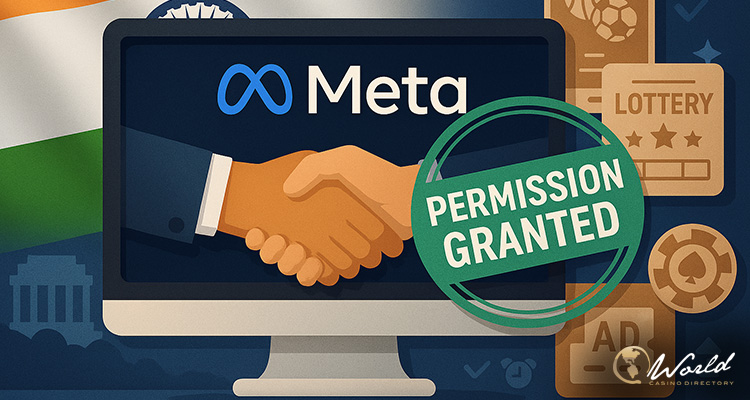Meta has revised its global advertising policies for gambling and real money gaming (RMG), with significant implications for operators targeting India. Under the newly updated guidelines, companies promoting gambling products and services must obtain written permission from Meta before launching any advertising campaigns. Additionally, all such ads are strictly prohibited from targeting users under the age of 18.
Stricter oversight on ad content and landing pages:
These changes apply to any product where participation or prizes involve something of monetary value—be it cash, cryptocurrencies like Bitcoin, or digital rewards. The updated definition encompasses a broad range of online gambling formats, including but not limited to sports betting, lotteries, poker, casino games, fantasy sports, raffles, sweepstakes, bingo, and skill-based tournaments.
According to Meta’s revised standards, “Ads that promote online gambling and gaming are only allowed with our prior written permission.” This includes not only direct ads but also those that link to landing pages containing gambling-related promotions. Even aggregator or affiliate websites, where users cannot directly gamble, are required to follow these new rules.
The company emphasized that advertisers must “comply with all applicable laws and use targeting criteria in line with Meta’s standards.” This includes providing documentation verifying that the gambling or gaming activity is legal in the jurisdictions they are aiming to reach.
Furthermore, any game requiring players to make purchases to continue playing or improve their chances of winning monetary prizes is included under the gambling classification. Meta’s policy defines such activity as: “Games where anything of monetary value is included as part of a method of entry and anything of monetary value is included as part of the prize, including but not limited to cash or digital currencies such as Bitcoin.”
India gets special recognition through the AIGF certification:
One of the most notable developments for the Indian gaming industry is Meta’s decision to recognize certificates issued by the All India Gaming Federation (AIGF) as valid proof for ad authorization. This means RMG operators in India now have a streamlined path for ad approval by presenting either a court order or certification from a recognized federation classifying the game as one of skill.
A memo from AIGF to its members welcomed the update: “After nearly two years of sustained efforts and continuous engagement with Meta, we are pleased to inform you of a significant policy update.” As reported by Storyboard18, the federation noted that this change would “streamline the ad approval process for RMG operators in India.”
The AIGF also indicated that a more detailed operational process for applying under the new policy would be released in the coming weeks. The simplified approval mechanism is expected to offer much-needed clarity and efficiency in a sector that has faced regulatory uncertainty and inconsistent enforcement practices.
These policy changes reflect Meta’s broader commitment to responsible advertising practices, especially in industries that involve financial risk or legal complexity. By enforcing stricter eligibility requirements and clearer guidelines, the company aims to support both compliance and consumer protection.
At the same time, the decision to validate skill-based certification in India acknowledges the unique legal status of certain games in the country and provides a viable framework for companies seeking to advertise without running afoul of Meta’s platform rules or regional regulations.
With India’s online gaming market experiencing rapid growth, this development is expected to significantly ease regulatory bottlenecks for operators while enhancing Meta’s control over the kind of gambling content shown to its users. By setting these new standards, Meta aims to balance commercial opportunity with social responsibility, ensuring that gambling-related content remains lawful, age-appropriate, and transparent.



